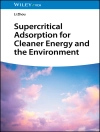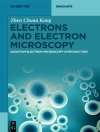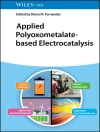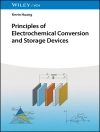ADVANCED REDOX FLOW TECHNOLOGY
This book serves as a comprehensive guide to redox flow technologies, from their basic principles to their applications. As a result, this book provides a thorough review of craftsmanship in the subject, as well as the potential for future advances.
As energy becomes a greater global concern, redox flow technology must be considered as a possibility. There is concern over energy shortages and rising air pollution, paving the way for renewable energies like solar and wind energy which have been extensively analyzed and evaluated in recent years. These renewable sources, on the other hand, are intermittent and frequently unpredictably available, resulting in low-quality output energy and a negative influence on grid stability. To date, diverse types of energy storage systems have been designed for various purposes, each with its own set of benefits and drawbacks. In recent years, redox flow technology, particularly vanadium redox flow, has progressed substantially. Experiments at various scales have been successfully carried out, proving the viability of redox flow technology in bulk energy storage applications. In addition, innovative redox flow technologies that offer more energy storage per unit mass or a more cost-effective volume of the storage device have attracted a lot of interest.
This book is intended to serve as a comprehensive guide to redox flow technologies, from their basic principles to their applications. As a result, this book provides a thorough review of the craftsmanship in the subject, as well as the potential for future advances.
Advanced redox flow technology has sparked interest in bulk energy storage due to its flexibility in design, safety in operation, efficient energy storage, and near-zero environmental impact. The technology has been extensively developed and tested at a range of levels in recent years, demonstrating its applicability and usage.
Sobre el autor
Inamuddin, Ph D, is an assistant professor at the Department of Applied Chemistry, Zakir Husain College of Engineering and Technology, Faculty of Engineering and Technology, Aligarh Muslim University, Aligarh, India. He has extensive research experience in multidisciplinary fields of analytical chemistry, materials chemistry, electrochemistry, renewable energy, and environmental science. He has worked on different research projects funded by various government agencies and universities and is the recipient of awards, including the Department of Science and Technology, India, Fast-Track Young Scientist Award and Young Researcher of the Year Award 2020 from Aligarh Muslim University. He has published about 210 research articles in various international scientific journals, 18 book chapters, and 170 edited books with multiple well-known publishers. His current research interests include ion exchange materials, a sensor for heavy metal ions, biofuel cells, supercapacitors, and bending actuators.
Tariq Altalhi, Ph D, is working as an associate professor in the Department of Chemistry at Taif University, Saudi Arabia, where he has served as the head of the chemistry department and vice dean of the science college. He has co-edited various scientific books and established key contacts in major industries in Saudi Arabia. His group is involved in fundamental multidisciplinary research in nanomaterial synthesis and engineering, characterization, and application in molecular separation, desalination, membrane systems, drug delivery, and biosensing.












